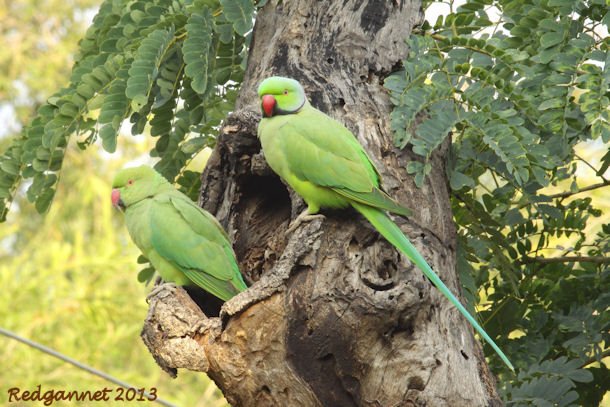
Rose-ringed Parakeets (Psittacula krameri) have become the scourge of the householder in the Home Counties of the UK. Their raucous screeching kick-starts more mornings than alarm clocks and early flights from Heathrow Airport combined.
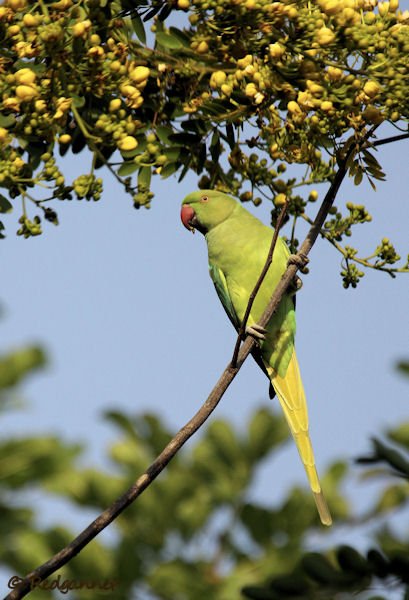
There are many suggestions about their introduction into the UK. Theories range from the dull account of an escape from a Staines petshop to the more romantic notion that they starred alongside Humphrey Bogart and Katherine Hepburn when they filmed “African Queen” here at Isleworth Studios. If you like coincidences, Hepburn’s character in the film was called Rose and the birds spread up and down the river (Thames, not Ulanga) as they colonised London and the South-east.
Although there is a small wild population in the northern reaches of nearby Uganda, Rose-ringed Parakeets would have been a vagrant for German East Africa (now known as Tanzania) at the time. Their original home is Northeast Africa, The Middle East, India and Myanmar. Elsewhere, it has been introduced and in most places is equally despised by those who live near large roosts.

Apart from the awful noise, they are cavity nesters and dominate the available nesting spaces to the detriment of indigenous species. For this reason, the UK Government have put the Rose-ringed Parakeet on the General Licence. This means that it can be shot along with other pests that have a detrimental effect on the native fauna and/or flora.
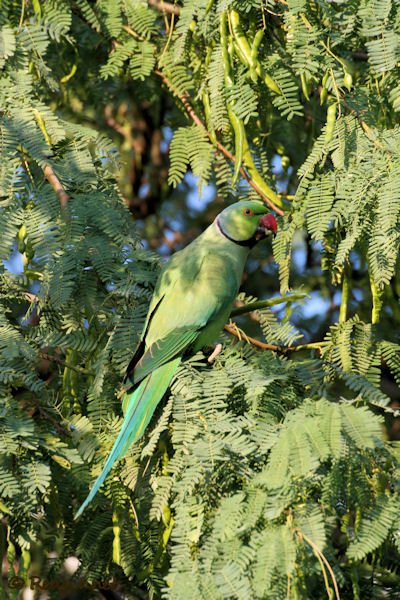
There is no question that it is a striking bird and deserving of admiration for its adaptability and resourcefulness. Many visitors to Bushy Park in Surrey for example are amazed to find such exotic birds flying free and delight in seeing them feeding acrobatically in the trees. But the fact remains that they are unwelcome and noisy. Property prices near a communal roost are depressed by the mess and the noise. Seldom will you find a keener eye than that of a sleep-deprived southerner whose house price is affected by something he can legally shoot!
…
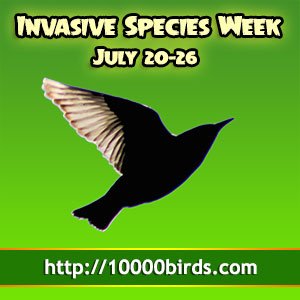 Here at 10,000 Birds 20 July – 26 July is Invasive Species Week. We use the term “Invasive Species” in the broadest sense, to encompass those invasive species that have expanded beyond their historical ranges under their own power, by deliberate introduction, or by unintentional introduction. The sheer number of species that have been shuffled around on our big earth is impressive, though we will be dealing with the smaller sample size of invasive avians and other invasives that effect avians. Nonetheless, this week will be chock full of invasive species. So batten down the hatches, strap on your helmet, and prepare to be invaded! To access the entire week’s worth of content just click here.
Here at 10,000 Birds 20 July – 26 July is Invasive Species Week. We use the term “Invasive Species” in the broadest sense, to encompass those invasive species that have expanded beyond their historical ranges under their own power, by deliberate introduction, or by unintentional introduction. The sheer number of species that have been shuffled around on our big earth is impressive, though we will be dealing with the smaller sample size of invasive avians and other invasives that effect avians. Nonetheless, this week will be chock full of invasive species. So batten down the hatches, strap on your helmet, and prepare to be invaded! To access the entire week’s worth of content just click here.







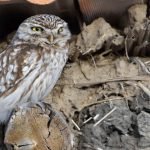
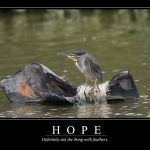
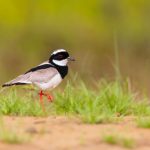
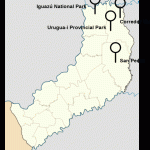
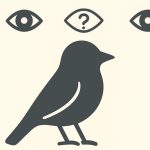

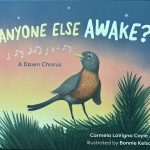
Strange that they do not seem to compete with native species here in Germany. At least I have not heard of any research documenting this. Most people (general public & birders alike) see them rather positively, although they do occasionally damage house walls by biting breeding holes into the houses’ insulation layer..